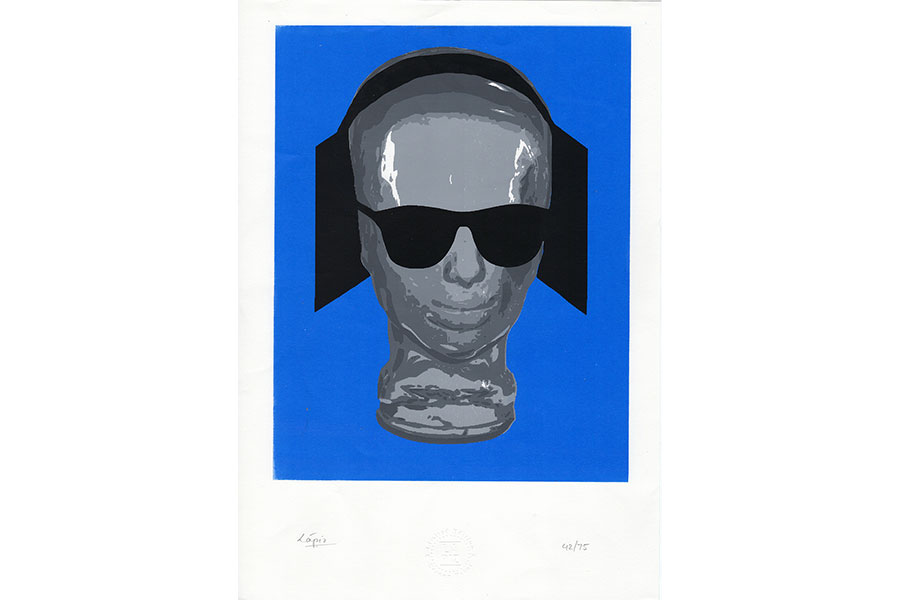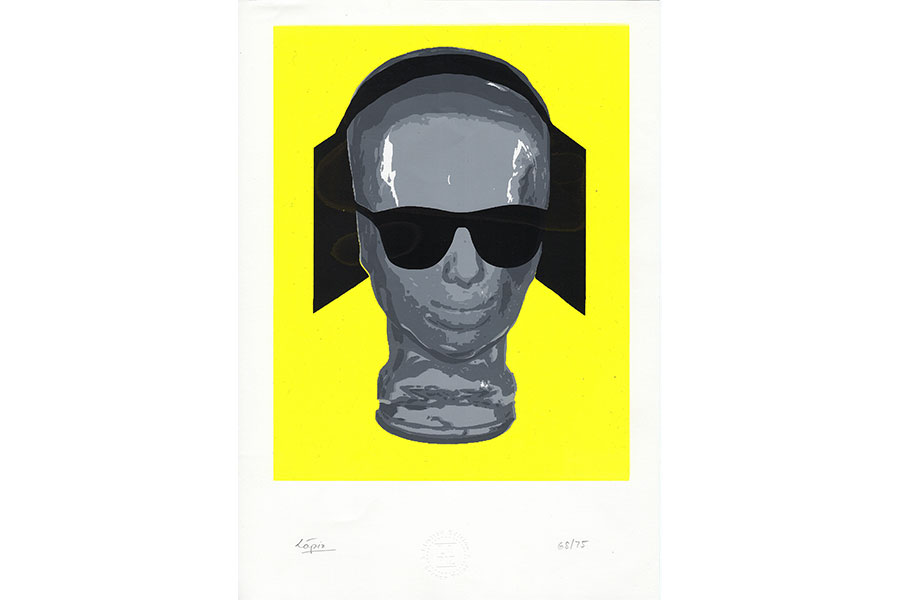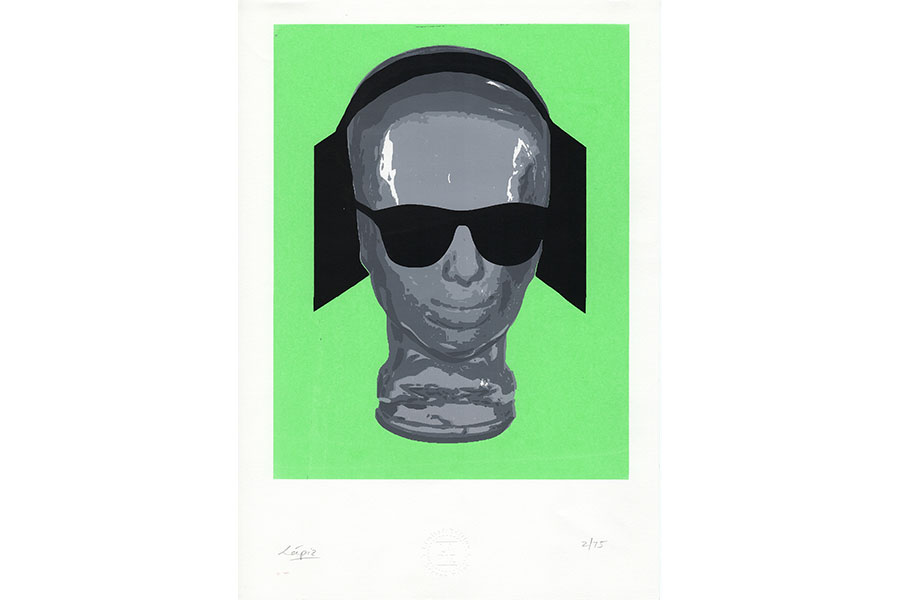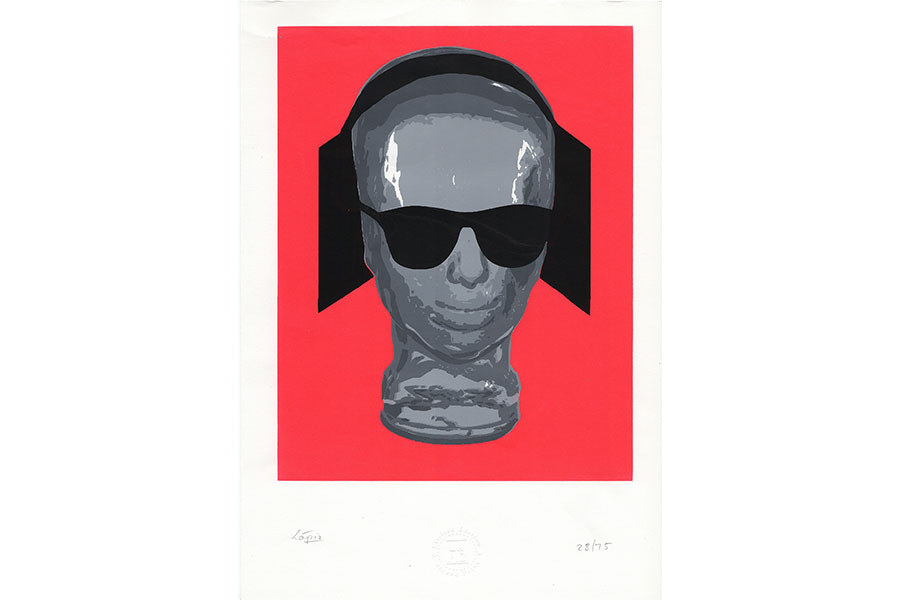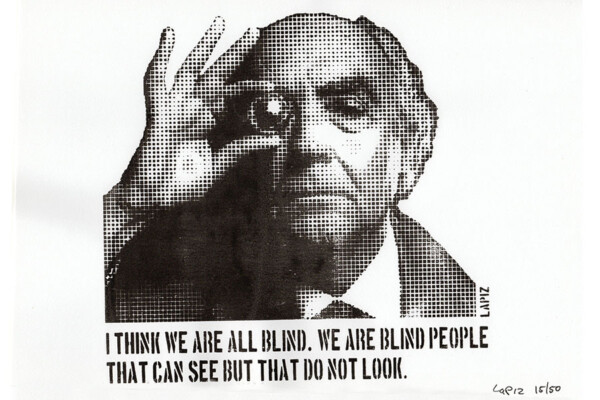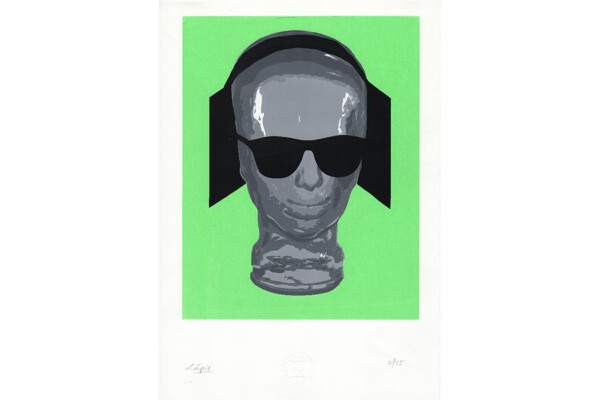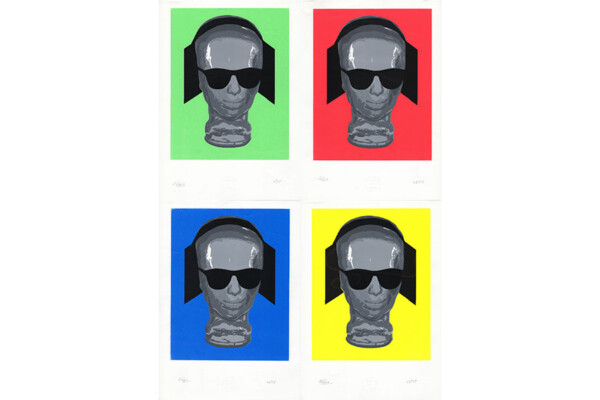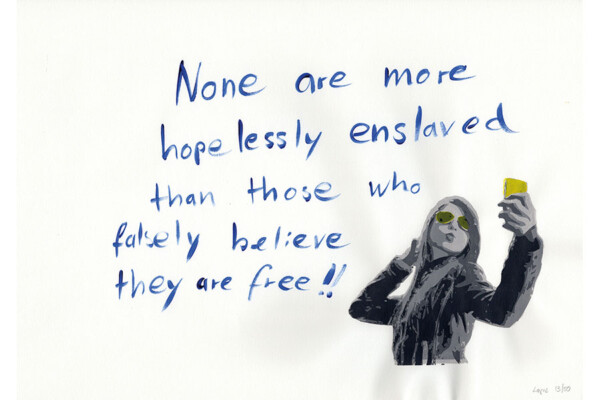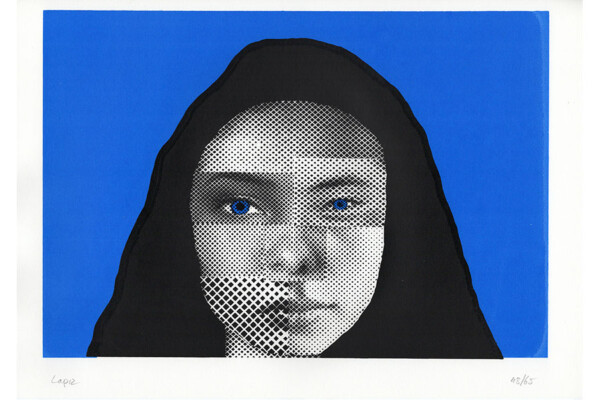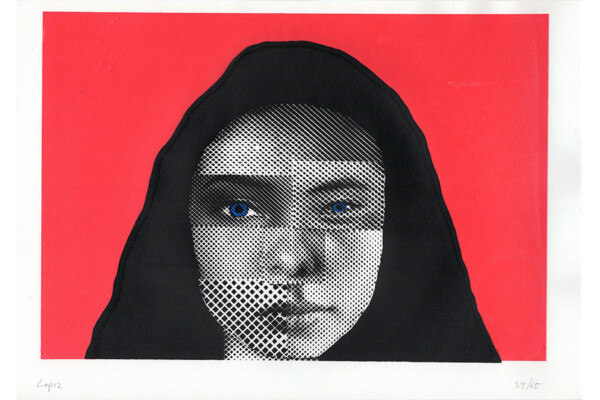‘Google Heads’ shows a transparent/glass head which is wearing dark sunglasses and blinders. The background colours are yellow, red, blue or green. If you would like to purchase an entire group of 4 prints with different backgrounds, please head over here for a discounted price.
Description:
The motive plays with two main ideas: On the one hand the loss of (online) privacy and sharing of personal information and on the other hand the creation of filter bubbles. A filter bubble can be described as a niche created by an algorithm filtering out all information that is assumed to be unwanted by the user. One’s online behaviour (reading of certain pages, liking or not-liking certain content) contributes to the definition of one’s own filter bubble. As reality is defined by what is perceived, these bubbles create the illusion one’s ideas are shared by everyone else (including ‘fake’ news).
The creation of filter bubbles is achieved by bundling personal information entered in different services and sharing it with 3rd parties. The more is known from a user by a company, the easier it is to create filter bubbles and ultimately “offer” personalised results. This can be achieve by crawling through one’s emails for key words, or share one’s personal social contacts. Whatsapp for example shares phone contacts with its parent company Facebook. Google can access information such as social contacts and personal interests when searches are performed while being logged into one of its services (such as google+).
These practices apply to many tech companies like Facebook, Yahoo and Google, the latter was used as a representative example for this motive, providing the distinctive colour code as background colours. The blinders reflect on Google’s practices to tilt the presented search results in favour of the niche and not of the most relevant one. This leaves people in their respective filter bubbles without them realising the world that diverts from their personal ideas. The tinted sunglasses represent Google’s engagement of censorship (for example in China) and blacklisting certain words that might generate controversial results such as ‘suicide’ which result in showing advertisement for revolving doors (also called suicide doors) instead of suicide prevention sites.
The glass head shown in the motive represent the private and personal information shared by tech companies. To say it with the words of Google’s CEO Eric Schmidt: “True transparency and no anonymity” is the way of the internet.
Details:
- hand-made silk screen print on 190 g/sm Hahnemuehle paper
- 42 x 30 cm
- limited edition of 75 copies; signed, numbered and embossed

